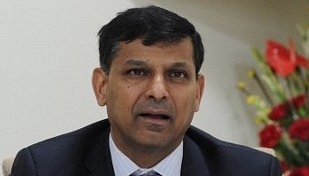Economy
Why India Does Not Need An Inheritance Tax

The idea of an inheritance tax ignores one of the fundamental incentives that drive humans to create and save wealth: the incentive of family creation.
Even as the idea of an inheritance tax – as a tool to combat the rising inequality of incomes – increasingly seems to gain ground among economists across the world, Reserve Bank of India’s Governor Raghuram Rajan boldly and categorically denounced it recently (22nd Feb, 2015). “A dramatic estate tax generates value for lawyers as they figure out ways to hide the estate so that it does not get taxed,” he said.
He could not have put it any better. As with any welfare-oriented policies that seek to bring about economic equity, the idea of taxing inherited wealth is largely backed by good intentions. The prime expectation is that it would bring us one step closer to defeating income inequality, the monstrous evil that continues to disrupt social harmony and fuel widespread discontent. It would also expectedly boost revenues. These are promising prospects, if only economics rewarded noble intentions.
Milton Friedman, an American economist who won the Nobel Prize in Economic Sciences in 1976, called it a great mistake “to judge policies and programs by their intentions rather than their results,” suggesting that right incentives tend to trump good intentions. Not surprisingly, Friedman also spoke vociferously against the idea of enacting inheritance taxes.
His main argument focused on how such a tax ignores one of the fundamental incentives that drive humans to create and save wealth: the incentive of family creation. We work hard so we can enjoy the fruits of our labour, but also so we can ensure the welfare of our children and our spouse. At a deeper level, elucidated Friedman, we are hardwired to value the utility that our children will get from consumption higher than we value our own – this is particularly ironical given the fact that we have several reasons to believe the next generation will enjoy a better standard of living than our own, just as we enjoy a better standard of living than our parents’.
The basic argument against inheritance taxes is thus moral.
In addition to discouraging wealth creation, it also penalises the virtue of frugal living. When we know that the wealth that we earned industriously could be confiscated by the State in the event of something as unpredictable as death, then we would have greater incentive to increase current consumption, mostly in frivolous activities. This would reduce saving and investment in factories, machines, and technologies that would otherwise increase employment or raise real wages.
Assume that inheritance taxes do not exist and, consequently, they do not create perverse incentives on natural consumption patterns. In that case, as Harvard professor Gregory Mankiw explains, we generally prefer to “smooth out consumption” to several periods. If I were offered five ladoos, for example, I would prefer to eat them in intervals rather than all at once. This is because the fulfillment I get from consuming each additional ladoo diminishes marginally. Similarly, the benefit I get from consuming Rs. 20,000 worth of goods and services, all in one month, would be less than the benefit I would get from consuming Rs. 10,000 worth of goods and services each month. The concept of inheritance taxes disrupts this fundamental virtue of saving in good times to provide for the future.
Critics say inheritance taxes help raise revenues for the state. This may be true, but they also create unintended consequences for other parts of the economy, the effects of which are not readily visible. Most policies that intend to redistribute wealth also end up destroying the very incentives that create wealth. We should therefore tread this path with extreme caution.
Also watch: Milton Friedman clears up misconceptions about wealth redistribution, in general, and inheritance tax, in particular.
Support Swarajya's 50 Ground Reports Project & Sponsor A Story
Every general election Swarajya does a 50 ground reports project.
Aimed only at serious readers and those who appreciate the nuances of political undercurrents, the project provides a sense of India's electoral landscape. As you know, these reports are produced after considerable investment of travel, time and effort on the ground.
This time too we've kicked off the project in style and have covered over 30 constituencies already. If you're someone who appreciates such work and have enjoyed our coverage please consider sponsoring a ground report for just Rs 2999 to Rs 19,999 - it goes a long way in helping us produce more quality reportage.
You can also back this project by becoming a subscriber for as little as Rs 999 - so do click on this links and choose a plan that suits you and back us.
Click below to contribute.
Latest